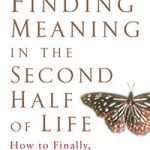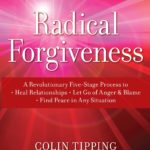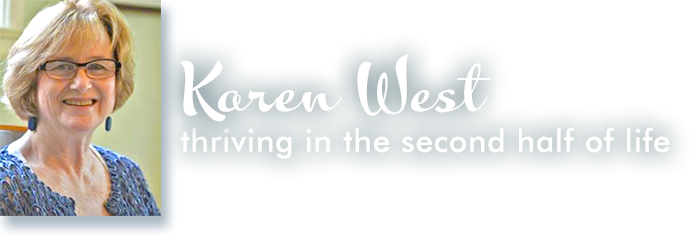In my last blog entry, I quoted Rabbi Zalman Schachter-Shalomi in From Age-ing to Sage-ing, who said that in order to forgive, we have to ask ourselves: “How did my hidden agenda—my expectations, unacknowledged needs and unresolved conflicts—lead to my getting hurt?” (98)
 In Finding Meaning in the Second Half of Life: How to Finally, Really Grow Up by James Hollis, a Jungian analyst, he makes the same point when he talks about “projection.” He writes, “…we project our vision, or our parent’s vision, or our culture’s vision of the good life onto our jobs, our partners, our children, homes and possessions, without knowing how much we are asking of them. We are counting on them to make us happy, bring us success, fulfillment, meaning, and perhaps even allow us to remain naïve children a bit longer.” (78) Hollis asks us “to own the projection, see that its agenda may not be realistic, may be infantile, may not have legitimacy when flushed out of hiding, and then redirect our lives more responsibly.” (81)
In Finding Meaning in the Second Half of Life: How to Finally, Really Grow Up by James Hollis, a Jungian analyst, he makes the same point when he talks about “projection.” He writes, “…we project our vision, or our parent’s vision, or our culture’s vision of the good life onto our jobs, our partners, our children, homes and possessions, without knowing how much we are asking of them. We are counting on them to make us happy, bring us success, fulfillment, meaning, and perhaps even allow us to remain naïve children a bit longer.” (78) Hollis asks us “to own the projection, see that its agenda may not be realistic, may be infantile, may not have legitimacy when flushed out of hiding, and then redirect our lives more responsibly.” (81)
I have learned so much since I began my sage-ing journey. I now look back over my life and I have a new, much more accurate perspective on so many things. One of the things I learned after reading about projection in the context of forgiveness is why I was so unhappy in the last years of my high school teaching career. I now realize how much I projected onto my students. For many years, I loved teaching teenagers. Teaching gave me so much meaning and happiness.
But towards the end of my career, I was sad that the students “changed.” They were no longer interested in what I saw as my fun, creative lesson plans. I now realize I was blaming them for no longer making my life meaningful and happy, and I now realize that it was not their responsibility to fulfill my projection. It was my responsibility to change the way I was teaching. Now I can forgive them for not meeting my expectations, and even more importantly, I realize that it would be more appropriate for me to ask them for their forgiveness.
As Hollis says, “Being accountable for the content and issues embodied in our eroded projections is probably the chief service we can bring to our jobs, our partners, our children. As we lift the burden of our unconscious traffic off the other, we free them to be whatever or whomever they are meant to be when we are not interfering with them.” (82–83) I’m so sorry that I was “interfering” with my students instead of “freeing them to be whatever or whomever they were meant to be.” Hollis says that if we are going to find meaning in the second half of life, we need “to finally, really grow up” (subtitle of his book). This is one of ways we can do that.
 Another book that I find really helpful when I think about forgiveness is Radical Forgiveness by Colin Tipping. He also writes about how we can unconsciously play a part in our being hurt. In our childhood, we have experiences that cause us to create “core negative beliefs.” For example, if feel that our parents didn’t show us enough love, we may assume that we are “unlovable.” But this is just a “story” that we have made up, “based on a few facts and a whole lot of interpretation.” (24)
Another book that I find really helpful when I think about forgiveness is Radical Forgiveness by Colin Tipping. He also writes about how we can unconsciously play a part in our being hurt. In our childhood, we have experiences that cause us to create “core negative beliefs.” For example, if feel that our parents didn’t show us enough love, we may assume that we are “unlovable.” But this is just a “story” that we have made up, “based on a few facts and a whole lot of interpretation.” (24)
I’m guessing that each of us struggle with at least one and probably several of these disempowering beliefs. On P. 272, Tipping lists several of them. As I’ve written before in this blog, my father thought his role as “father” was to control me instead of to love me. Because of his bad parenting, I often see myself as “unlovable.” I also struggle with “I will never be enough,” “It’s not safe to be me,” and “It’s not safe to speak out.”
Tipping also writes about how you will continue to have experiences throughout your life that will reinforce your negative core belief—for example, that you are “unlovable.” As he says, “Life will always prove your beliefs right.” (16) Sounds painful, doesn’t it? But Tipping tells us that these repeated experiences are actually “opportunities” and “gifts.” (15) I hope you’ll read my next blog entry where I will write about what he Tipping means when he says, “…we need situations in our lives that allow us to feel victimized so we can transform the energy through Radical Forgiveness.” (xvii)


4 thoughts on “Living Our Lives More Responsibly”
This is beautifully written, Karen. One of the best descriptions I have seen about how we participate in our our victimhood. Thank you.
Thanks, Pat. Can you share anything from your life?
I agree with Pat. You are a talented writer. I have experienced the power of forgiveness recently with my brother. He hasn’t spoken to me in over a year. He was angry because my sister asked us to keep something secret which in hindsight was wrong. Hr called me recently and said he didn’t want any bad blood between us. I said I was sorry. It was so healing for me. I simply forgave the wrongs I thought he caused me without questioning. Powerful!
Thank you, Kathy, for your comment and for sharing your experience with your brother. I’m so glad it worked out for you.